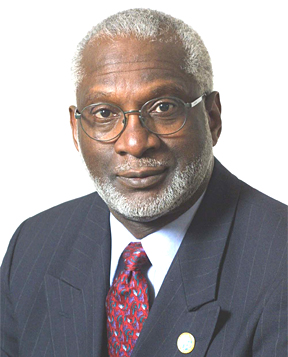You are here
The Longer The Shutdown Persists, The More We Are At Risk
 Former U.S. Surgeon General Dr. David Satcher, who was the U.S. Centers for Disease Control and Prevention’s (CDC) director during the last government shutdown that occurred in 1995–1996, penned a Bloomberg News op-ed focused on the government shutdown’s impact to CDC and, in turn, public health.
Former U.S. Surgeon General Dr. David Satcher, who was the U.S. Centers for Disease Control and Prevention’s (CDC) director during the last government shutdown that occurred in 1995–1996, penned a Bloomberg News op-ed focused on the government shutdown’s impact to CDC and, in turn, public health.
In his op-ed, Dr. Satcher makes a number of insightful points about vital public health activities that are curtailed by the shutdown, from global disease detection and response to lab inspections for handling deadly agents to cross-state collaboration for lab work and outbreaks.
As a former CDC director with experience during a shutdown, he also provides some important perspective on other issues that have not been as widely covered but are important to keep in mind whether the shutdown ends tomorrow or persists longer:
“Importantly, the longer a shutdown lasts, the more difficult it is to catch up. That’s because it takes any agency time to get back up to speed when the government fully reopens. That means days can turn into weeks, and weeks into months.
“Shutdowns also take a toll on morale: It’s frustrating for any organization to try to carry out its vital mission with inadequate resources, and dedicated staff members are discouraged when they think their roles have been devalued.
“The most critical danger, however, could be the blind spots in detection that inevitably develop as a result of understaffing. We may be lucky this time and avoid any severe outbreaks. But surely we can agree that it is irresponsible to base our disease detection and response strategy on luck.”
I hope the shutdown ends soon, because as Dr. Satcher states, “the longer the shutdown persists, the more we are all at risk.”